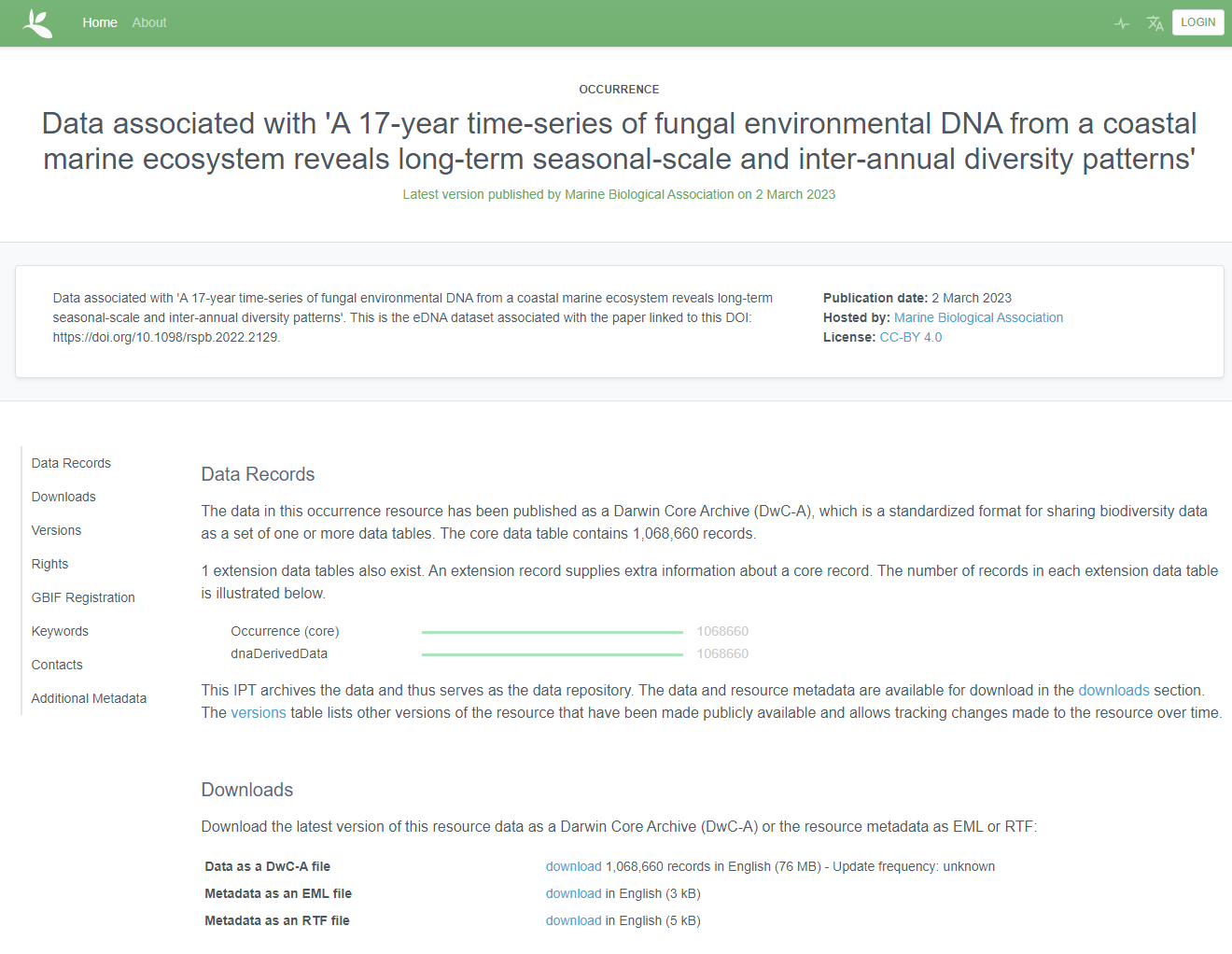User organisation
The Marine Biological Association (MBA) is one of the world’s longest-running societies dedicated to promoting research into our oceans and the life they support. Since 1884, they have been providing a unified, clear, independent voice on behalf of the global marine biological community and have members throughout the world. The MBA runs a research laboratory in Plymouth, UK, which carries out in-depth scientific research into the interconnectedness of the marine environment.
Challenges faced by the user
Environmental DNA (eDNA for short) is the cellular material that is released into the water by plants and animals from a range of sources including shed skin, faeces, mucous, hair, eggs and sperm, or when they die. Species occurrence data (i.e. the presence of a species at a particular location and time) derived from eDNA studies present both a challenge and opportunity to those studying marine biodiversity. These derived occurrence data will further our understanding of species distributions but generate huge volumes of data that need to be integrated and displayed alongside more traditionally collected species occurrence data.
Researchers at the Marine Biological Association (MBA) wanted to ensure maximum impact of their research by augmenting the https://doi.org/10.1098/rspb.2022.2129">peer reviewed publication and the published raw sequence data with processed species occurrence data. By publishing the derived occurrence data through EMODnet Biology and the OBIS network much greater visibility of their research was achieved in addition to contributing a large volume of marine fungi data into the EMODnet platform.
Emerging standards for the description of eDNA derived occurrence data published through the Global Biodiversity Information Facility (GBIF) have been largely untested and the tooling and expertise to transform eDNA data into the Darwin Core Archive standard was not available to the MBA Research Group, by partnering with EMODnet, the data could be manipulated into a format that can easily be ingested by regional and global biodiversity data aggregators.
How does EMODnet support the user
Expertise from the EMODnet consortium enabled the testing and deployment of eDNA derived occurrence data standards developed through GBIF and for those standards to be applied to marine data. The Python scripts developed which carry out the reformatting were developed through EMODnet Biology funding and can be reused and shared to facilitate rapid transformation of data generated through eDNA-based analyses into Darwin Core Archive, and published through EMODnet. The standards used include the application of marine domain specific vocabularies to facilitate FAIR-based approaches to data publication.
Impact of EMODnet
The developed workflow and associated scripts and processes will enable greater cohesion between the publication of peer-reviewed manuscripts and data publication. Such alignment will broaden and increase the impact of research outputs. The work described here will be operationalised within the research activities of the organisation to ensure rapid publication of eDNA derived occurrence data through established data pipelines to aggregators and publishers of data at the regional and global scales. The adoption of this workflow will greatly increase the volume of available data, increasing the evidence base to support effective management, policy development and supporting future research activities.
Media

Screenshot of the published eDNA derived occurrence data published through the OBIS-UK platform hosted at the MBA. Credit: Dan Lear/MBA
